10 Best Herbal Essential Oils For Rashes

Herbal essential oils, such as lavender, chamomile, and calendula, are commonly used for their soothing and anti-inflammatory properties to help alleviate symptoms of rashes.
These natural oils can be diluted with a carrier oil and applied topically to reduce redness, itching, and irritation associated with various types of skin rashes. Many people find these essential oils to be a safe and effective alternative to conventional treatments, especially for mild to moderate skin conditions. However, it is important to perform a patch test before use to avoid allergic reactions, as some individuals may be sensitive to certain oils.
Overall, herbal essential oils offer a gentle, natural approach to managing rash-related discomfort when used properly.
Table of Contents
- 1. English lavender (Lavandula angustifolia)
- 2. German chamomile (Chamomilla recutita)
- 3. Marigold (Calendula officinalis)
- 4. Melaleuca (Melaleuca alternifolia)
- 5. Aloe vera (Aloe barbadensis)
- 6. Chamomile (Matricaria chamomilla)
- 7. St. john's wort (Hypericum perforatum)
- 8. Dog rose (Rosa canina)
- 9. Ginger (Zingiber officinale)
- 10. Eucalyptus (Eucalyptus globulus)
1. English lavender (Lavandula angustifolia)

Lavandula angustifolia, commonly known as English lavender, is widely recognized for its soothing properties and is often used in the form of essential oil to help alleviate skin rashes.
The essential oil is extracted through steam distillation of the flowers and contains compounds like linalool and linalyl acetate, which have anti-inflammatory and antimicrobial effects. When applied topically, lavender essential oil can help reduce redness, itching, and irritation associated with various types of rashes. It is important to dilute the essential oil with a carrier oil before applying it to the skin to avoid irritation.
Due to its calming and healing properties, lavender essential oil is a popular natural remedy for those seeking relief from mild skin irritations.
2. German chamomile (Chamomilla recutita)
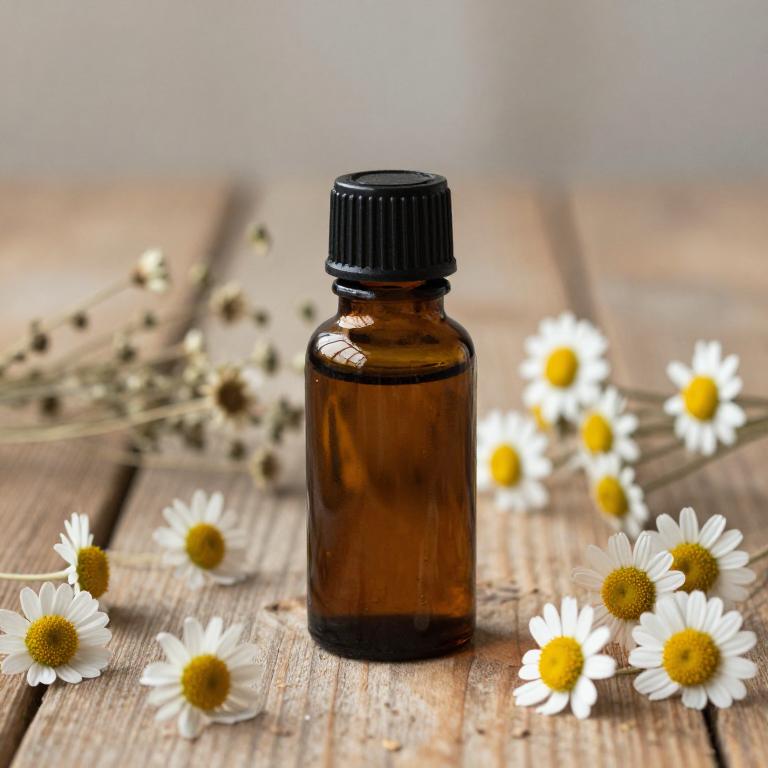
Chamomilla recutita, commonly known as German chamomile, is a widely used herb in aromatherapy and natural medicine, particularly for its soothing properties.
Its essential oil, extracted through steam distillation, contains compounds like bisabolol and chamazulene, which have anti-inflammatory and antiseptic effects. This oil is often applied topically to alleviate symptoms of skin rashes, such as redness, itching, and irritation, due to its calming and healing properties. When diluted properly with a carrier oil, chamomilla recutita essential oil can be safely used to support skin health and reduce discomfort associated with minor skin irritations.
Its gentle nature makes it a popular choice for those seeking natural remedies for sensitive or inflamed skin conditions.
3. Marigold (Calendula officinalis)
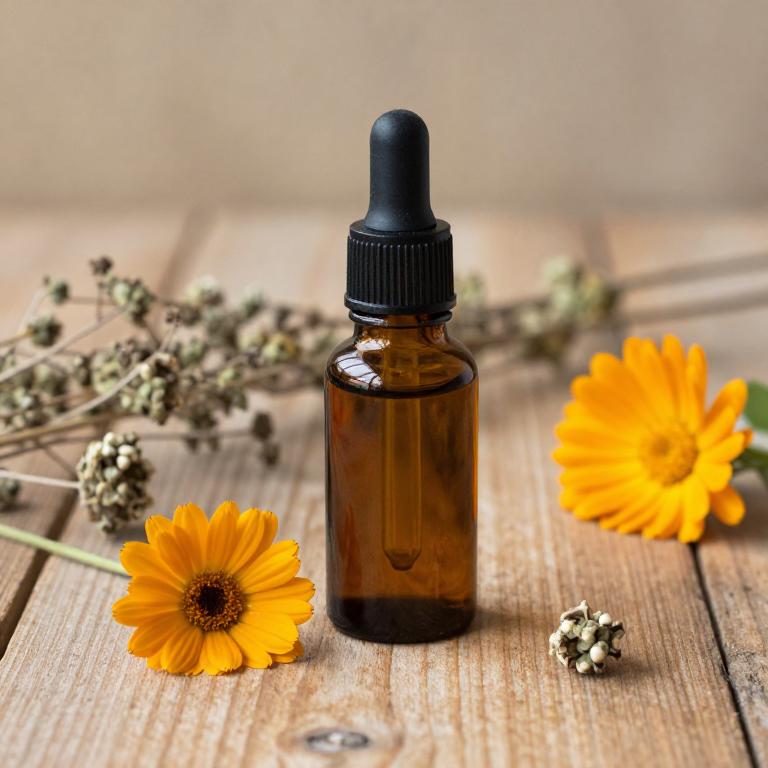
Calendula officinalis, commonly known as pot marigold, is widely recognized for its soothing properties and is often used in the form of essential oils to alleviate skin irritations and rashes.
The essential oil derived from calendula contains bioactive compounds such as flavonoids and triterpenes, which possess anti-inflammatory, antimicrobial, and wound-healing properties. When applied topically, calendula essential oil can help reduce redness, itching, and inflammation associated with various types of rashes. However, it is important to dilute the essential oil with a carrier oil before application to prevent skin irritation.
Due to its gentle yet effective nature, calendula essential oil is a popular choice in natural skincare and aromatherapy for managing mild to moderate skin conditions.
4. Melaleuca (Melaleuca alternifolia)

Melaleuca alternifolia, commonly known as tea tree oil, is a popular essential oil derived from the leaves of the Melaleuca alternifolia plant, native to Australia.
It is widely recognized for its antimicrobial, anti-inflammatory, and antifungal properties, making it a natural remedy for various skin conditions, including rashes. When diluted properly with a carrier oil, tea tree oil can help reduce redness, itching, and infection associated with skin rashes. Its ability to combat bacteria and fungi makes it particularly effective for rashes caused by bacterial or fungal infections.
However, it is important to use it cautiously and consult a healthcare professional before applying it to sensitive or broken skin.
5. Aloe vera (Aloe barbadensis)
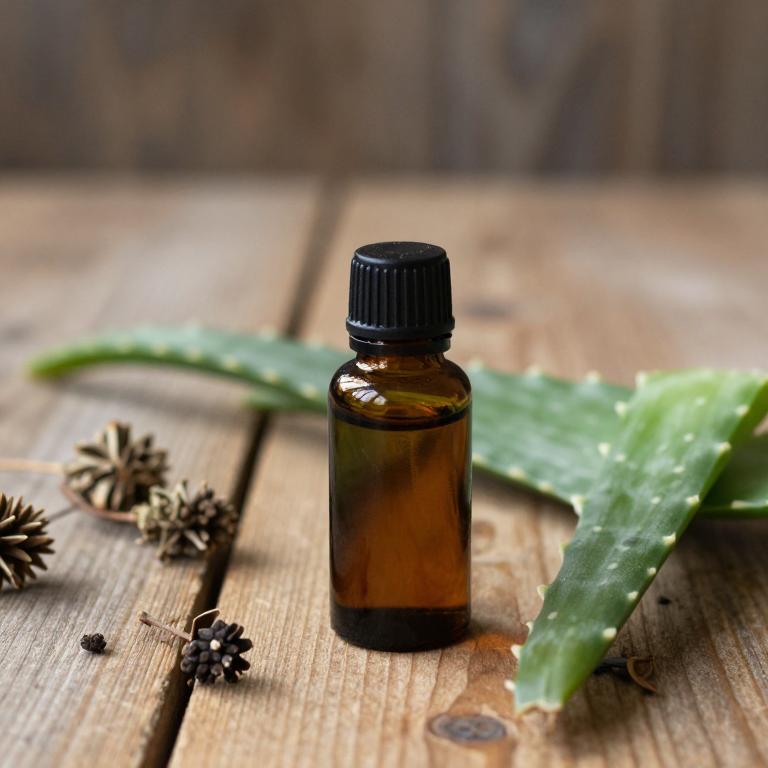
Aloe barbadensis, commonly known as aloe vera, is widely recognized for its soothing properties and is often used in the form of essential oils to alleviate skin rashes.
These essential oils are derived from the gel of the aloe plant and contain a variety of bioactive compounds that have anti-inflammatory, antimicrobial, and moisturizing effects. When applied topically, aloe barbadensis essential oils can help reduce redness, itching, and irritation associated with rashes by promoting skin healing and reducing infection risk. However, it is important to dilute the essential oil properly with a carrier oil to avoid skin irritation.
Overall, aloe barbadensis essential oils offer a natural and effective remedy for managing various types of skin rashes.
6. Chamomile (Matricaria chamomilla)
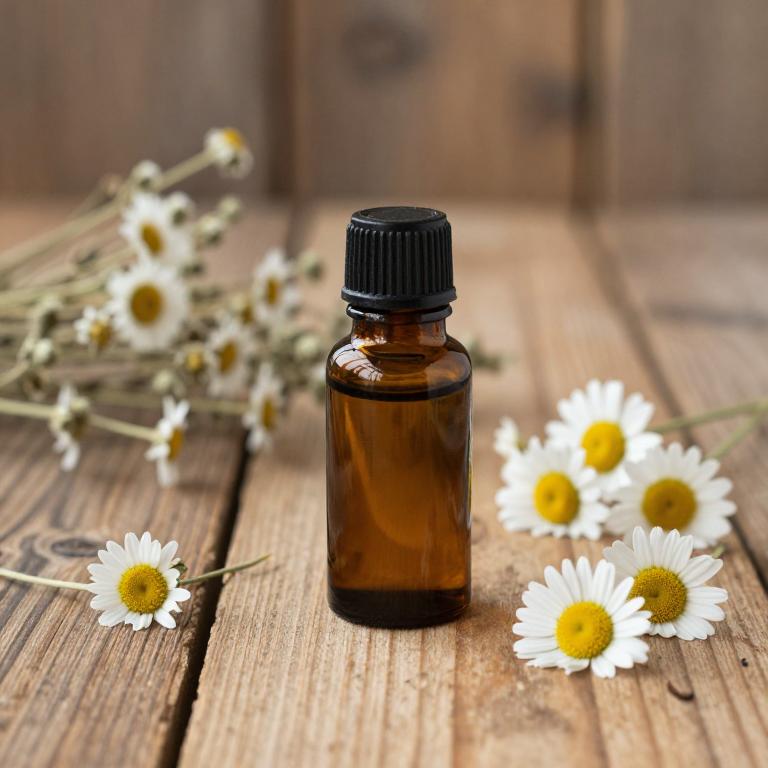
Matricaria chamomilla, commonly known as German chamomile, is widely recognized for its soothing properties and is often used in the form of essential oil to alleviate skin irritations and rashes.
The essential oil derived from the flowers of this plant contains compounds like bisabolol and chamazulene, which possess anti-inflammatory, antiseptic, and calming effects on the skin. When applied topically, it can help reduce redness, swelling, and itching associated with various types of rashes, including eczema and insect bites. However, it is important to dilute the essential oil properly with a carrier oil to prevent skin irritation, as undiluted use may cause adverse reactions.
Overall, chamomile essential oil is a valuable natural remedy for soothing and healing skin rashes when used safely and appropriately.
7. St. john's wort (Hypericum perforatum)
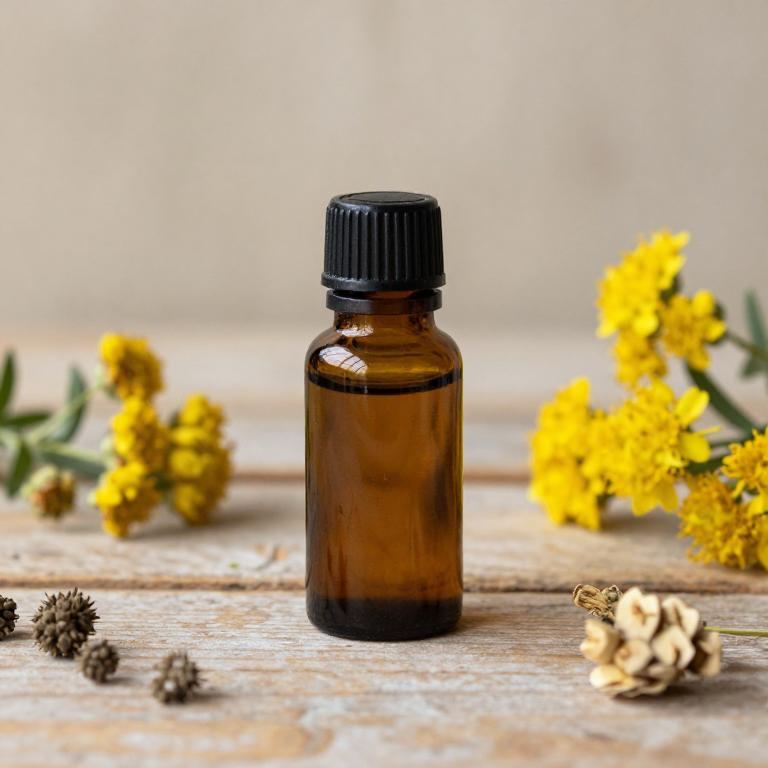
Hypericum perforatum, commonly known as St. John's Wort, contains essential oils that have been traditionally used for their anti-inflammatory and antiseptic properties.
These essential oils may help in reducing the redness and irritation associated with rashes by soothing the skin and promoting healing. However, it is important to note that the essential oils derived from Hypericum perforatum can be potent and may cause photosensitivity or skin irritation if not properly diluted. When used in diluted form, these oils may offer a natural alternative for managing mild skin irritations.
As with any herbal remedy, it is advisable to consult a healthcare professional before use, especially for individuals with sensitive skin or existing medical conditions.
8. Dog rose (Rosa canina)
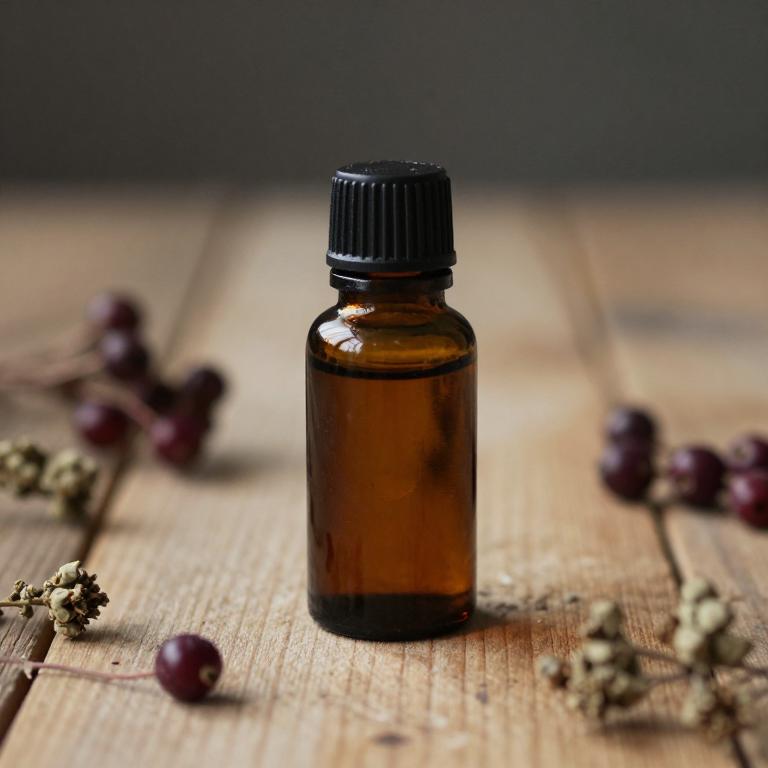
Rosa canina, also known as rosehip, is a herbal source that has been traditionally used for its anti-inflammatory and skin-repairing properties.
Rosa canina essential oils, derived from the seeds and outer husks of the rosehip fruit, are rich in essential fatty acids, particularly omega-3 and omega-6, which help to nourish and rejuvenate the skin. These oils are particularly beneficial for treating rashes due to their ability to reduce redness, irritation, and inflammation. When applied topically, Rosa canina essential oils can promote skin healing and provide a protective barrier against further irritation.
However, it is important to dilute the oil properly before use, as it is potent and may cause skin sensitivity if not used correctly.
9. Ginger (Zingiber officinale)

Zingiber officinale, commonly known as ginger, is a popular herb whose essential oil has been traditionally used for its anti-inflammatory and antimicrobial properties.
When applied topically, ginger essential oil can help soothe skin rashes by reducing inflammation and redness, making it a natural remedy for conditions like eczema or contact dermatitis. However, due to its potency, it should always be diluted with a carrier oil before applying to the skin to avoid irritation. The oil's active compounds, such as gingerol and shogaol, contribute to its ability to promote healing and relieve itching.
While it may offer relief for some types of rashes, it is advisable to consult a healthcare professional before using essential oils, especially for severe or persistent skin issues.
10. Eucalyptus (Eucalyptus globulus)

Eucalyptus globulus, commonly known as eucalyptus citriodora or lemon eucalyptus, is a popular herbal essential oil often used for its soothing and anti-inflammatory properties.
When diluted properly, it can be applied topically to help alleviate symptoms of rashes by reducing redness, itching, and irritation. The oil contains compounds like limonene and eucalyptol, which have antimicrobial and analgesic effects that may support skin healing. However, it should be used with caution, as some individuals may experience skin sensitivity or allergic reactions.
It is advisable to perform a patch test before using eucalyptus globulus essential oil on any rash and to consult a healthcare professional for persistent or severe skin conditions.